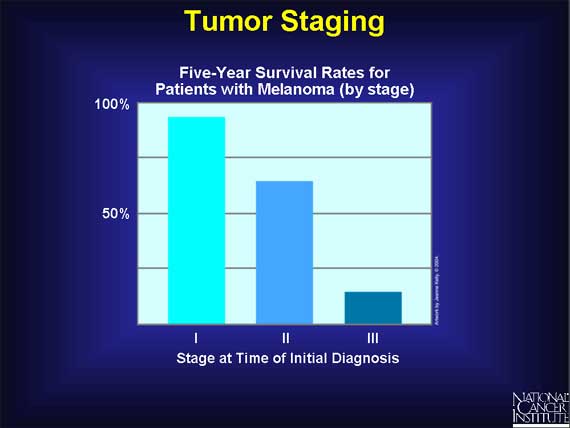|
After cancer has been diagnosed, doctors ask the following three questions to determine how far the disease has progressed:
- How large is the tumor, and how deeply has it invaded surrounding tissues?
- Have cancer cells spread to regional lymph nodes?
- Has the cancer spread (metastasized) to other regions of the body?
Based on the answers to these questions, the cancer is assigned a "stage." A patient's chances for survival are better when cancer is detected at a lower stage.

< Previous | Index | Next Slide > |